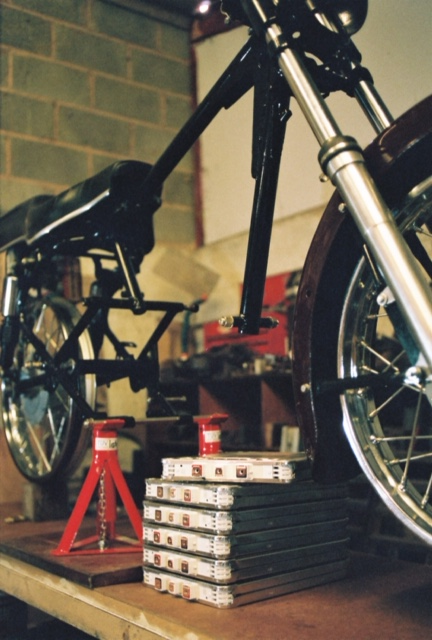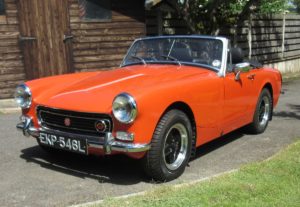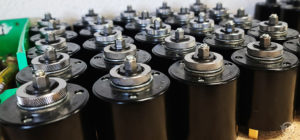The proposed introduction of E10 petrol poses some serious challenges for owners of classic vehicles.
ABOUT E10 FUEL:
From September 2021 E10 petrol will become the standard (95 octane) petrol grade in Great Britain. E10 petrol contains up to 10% renewable ethanol, which will help to reduce carbon dioxide emissions associated with petrol vehicles and tackle climate change. Petrol in the UK currently contains up to 5% renewable ethanol (known as E5).
E10 petrol is already widely used around the world, including across Europe, the US and Australia. It has also been the reference fuel against which new cars are tested for emissions and performance since 2016.
FUEL ECONOMY:
Using E10 petrol can slightly reduce fuel economy (the number of miles you are able to drive on a gallon of fuel). You may see a reduction of around 1%, but it is unlikely to be noticeable in everyday driving.
Other factors – such as your driving style or driving with under-inflated tyres or a roof rack – have a much more significant impact on fuel economy than using E10 petrol.
COMPATIBILITY:
Around 95% of petrol-powered vehicles on the road are compatible with E10 petrol and this figure is increasing all the time.
All new cars manufactured since 2011 are compatible with E10 petrol, and most cars and motorcycles manufactured since the late 1990s are also approved by manufacturers to use E10.
The following vehicles, however, may not be compatible with E10 petrol:
- classic, cherished and older vehicles
- some specific models, particularly those from the early 2000s
- some mopeds, particularly those with an engine size of 50cc or under
DOES E10 PETROL POSE A THREAT TO CLASSIC CARS?
For owners of classic cars, there’s a big problem on the horizon. While classic vehicles can happily run on the E5 petrol currently on sale, the new E10 fuel with its higher percentage of ethanol can cause all sorts of problems for them.
The move to change to mainly E10 fuel is a real concern for classic car owners. Ethanol in fuel has been around since 2008, and in the industry, we are already seeing problems arising from the current addition of low levels of ethanol in existing fuels (even up to the 5% level). These problems include deposits blocking fine-mesh fuel filters, degradation of fuel pipes and hoses and internals of carburettors suffering corrosion.
The regime required to fully empty and clean fuel systems between uses of the car is prohibitive both in terms of time and practicality, and replacing components with ethanol compatible ones may not always be economical, or in certain cases, even possible.
Some of the potential issues with using E10 fuel in your classic car can include:
- Blocked fuel filters
- Damaged fuel pumps
- Degradation to flexible fuel hoses
- Corroded carburettors
HOW TO PROTECT YOUR CLASSIC CAR:
Classic cars will still be able to run on E5 petrol, as the Government has pledged that there will be continued supplies of E5 petrol when E10 goes on sale. However, E5 will only be sold in the form of Super Unleaded Fuel which will incur a higher cost for classic car owners.
Another alternative is to use fuel additives, which will protect the fuel system in your vehicle. Fuel additives are recommended for classic engines previously requiring leaded fuel but now running on unleaded fuel.
Holden Vintage & Classic highly recommend the Millers VSPe Power Plus – Lead Replacement/Ethanol Protect/Octane Booster. VSPe Power Plus combats the adverse effects of ethanol and helps protect components from corrosion. It prevents valve seat recession when used with unhardened valve seats and improves the octane rating of the petrol which can improve engine performance and economy.







17 Comments. Leave new
HAH. Get ready. In the US, my miles per gallon dropped 10%, and I was checking it every fill up. 1 % reduction? My kidney.
I’ve noticed my jag XJ8 using twice the amount of fuel were i could do a weeks worth of driving 28 miles to work and back 5 days a week and running around on the weekend all of £30 and put more in on Monday morning now that £30 lasts till Thursday when i have to top up for the rest of the week usually another £30 I’ve had to park it up but i have been told to use the super unleaded a bit more in cost at the pump but should help reduce the fuel consumption
Then it is much cheaper for you to run on Super Unleaded E5 at around 8-10% more expensive
E10 already has some major drawbacks.
On my -68 Jaguar E-type the fuel cuases the jets to stick in the carbs whenthe car has been sittig for too long.
It’s a full days work in the garage to dismantle-clean-reinstall to make it work again
I’m seriouly concidering only running the car on Aspen 102 octane despite the price, double that of E10
We have had E10 for a number of years here in the US. The biggest problem I have encountered in my Classics is vapor lock. E10 has a lower boiling point than regular gasoline and will vapor lock pretty easily in older vehicles, especially at higher altitudes and warmer temperatures. Many Classics (including mine) with mechanical fuel pumps have had electric fuel pumps installed to mitigate the problem.
Such a joke. An environmental nightmare. Drives the price of corn up in poorer countries and will result in more deforestation as land is cleared to grow corn and sugar cane. It is also an energy sink, requiring more energy to produce than it returns in use.
Hi
I am running my 1969 Triumph TR6 on lead additive as it is a original engine which hasn’t had the valve seats hardened, is this sufficient.
I have been dealing with E10 for a good many years here in the U.S. I have changed fuel lines, floats and float needles on my 70 MGB. It has never been an issue for me. E10 absorbs moisture in cars that are stored for long periods of time with vented fuel caps. In hot weather classic car seem to have more performance issues especially in traffic. There are products here that help address E10 especially for long term storage. In the last few years more outlets have started selling ethanol free fuel at a higher cost. I am hopeful this will continue in the future.
What does VSPe Power Plus do which combats the adverse effects of ethanol? Will it allow me to use e10 fuel in my 2004 Mercedes CLK 200 Kompressor which the government website says should not be run on e10 fuel?
Hi I’M in Australia, we have had E10 for some time now and I have had no problems with it in my 1979 TR7, 1970 Vitesse or my 1998 MB 230SLK even my MG A,B &C are OK on it.
I have worked on many engines & have yet to see a conclusive case of valve seat recession. Likewise E10 has been available in other countries & I have not heard of problems other than those that could be put down to age & maintenance. We will see !!
Thanks guys, a really useful article. Would you be OK for us to republish it on our website with a credit to yourselves?
I own a 2001 Morgan 4/4 which has a Ford Focus engine. I have tried to find a definitive answer as to whether this engine will remain healthy on the new E10 fuel. As a result I think I would be wise to change to Super Unleaded Fuel to continue with the E5 grade. Fortunately, my very low annual mileage, will compensate for the extra fuel costs. Perhaps the ultimate solution would be an “E” Morgan?
Thank you Holden for the “heads up”.
Good Morning to you at Holden,
Trying to be environmentally friendly!
I have recently fitted a Catalytic converter to a Series II EType, supplied by Classicfabs. They say not to use fuel additives with the Cats. What is the advice on Millers VSPe Power Plus and Cat converters.
Best Regards
Colin Ungoed-Thomas
Thanks for the information, very helpful to all classic car owners.
I suggest you don’t use the disposable plastic fuel filters as supplied by Holden.
Some years ago I tried a high octane petrol from Tesco, at first only available in the London area.
I had a Skoda at the time which needed a minimum of 98 octane so I filled up every time I went to London. When the fuel came to Worcester I put it in my ’72 Spitfire. After a time the carbs. kept flooding, petrol leaking from float chamber. On stripping off the top of the Bus found tiny black bits holding the valves open, cleaned and off again. This kept happening, got quite quick at stripping the carbs on the roadside. On checking I found Tesco got to 100 octane by putting more ethanol in the mix, eating the fuel lines.Reverted to BP 97 Ultimate, after a few tanks no further issues. The fuel also dissolved the filter in the disposable fuel filters.
will the current super unleaded be replaced by the E5 ? I’ve always used super unleaded .